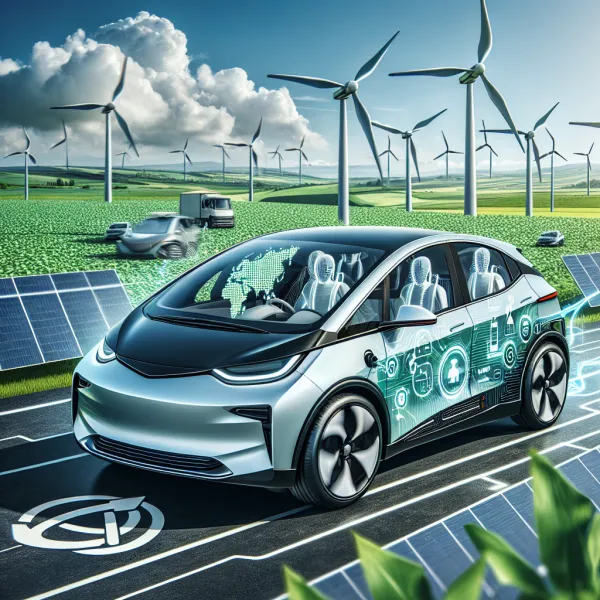The Nissan Leaf: Revolutionizing the Electric Vehicle Market
The Nissan Leaf: A Game-Changer in the Electric Vehicle Market
The Nissan Leaf has been a trailblazer in the electric vehicle (EV) market since its debut in 2010. As one of the first mass-produced EVs, it has paved the way for sustainable transportation, offering an affordable and eco-friendly alternative to traditional gasoline-powered cars.
Why the Nissan Leaf Stands Out
The Nissan Leaf is more than just an electric car; it’s a symbol of innovation and commitment to a greener future. Here are some of the key features that make it a standout choice:
- Affordability: The Leaf is one of the most budget-friendly EVs on the market, making it accessible to a wide range of consumers.
- Zero Emissions: As a fully electric vehicle, the Leaf produces no tailpipe emissions, significantly reducing its environmental impact.
- Advanced Technology: Equipped with cutting-edge features like ProPILOT Assist and e-Pedal, the Leaf offers a seamless and intuitive driving experience.
- Range and Charging: With a range of up to 226 miles on a single charge (for the Leaf Plus model), it’s suitable for both city commutes and longer trips.
Driving the Future of Sustainability
As the world shifts towards renewable energy and sustainable practices, the Nissan Leaf plays a crucial role in reducing carbon footprints. According to Nissan, the Leaf has already helped prevent millions of tons of CO2 emissions globally.
“The Nissan Leaf is not just a car; it’s a movement towards a cleaner, more sustainable future.”
Challenges and Innovations
While the Leaf has been a success story, it hasn’t been without challenges. Early models faced criticism for limited range and battery degradation. However, Nissan has addressed these issues with significant improvements in battery technology and vehicle design.
The introduction of the Leaf Plus, with its extended range and enhanced performance, demonstrates Nissan’s commitment to innovation and customer satisfaction.
What’s Next for the Nissan Leaf?
As competition in the EV market intensifies, Nissan continues to invest in research and development. Future iterations of the Leaf are expected to feature even greater range, faster charging capabilities, and more advanced autonomous driving technologies.
Additionally, Nissan’s focus on integrating renewable energy solutions, such as vehicle-to-grid (V2G) technology, positions the Leaf as a key player in the transition to a sustainable energy ecosystem.
Conclusion
The Nissan Leaf is more than just a car; it’s a symbol of progress and a testament to what’s possible when innovation meets sustainability. Whether you’re an eco-conscious driver or simply looking for a reliable and cost-effective vehicle, the Leaf offers a compelling choice.
As the EV market continues to grow, the Nissan Leaf remains a shining example of how technology can drive positive change for both individuals and the planet.
